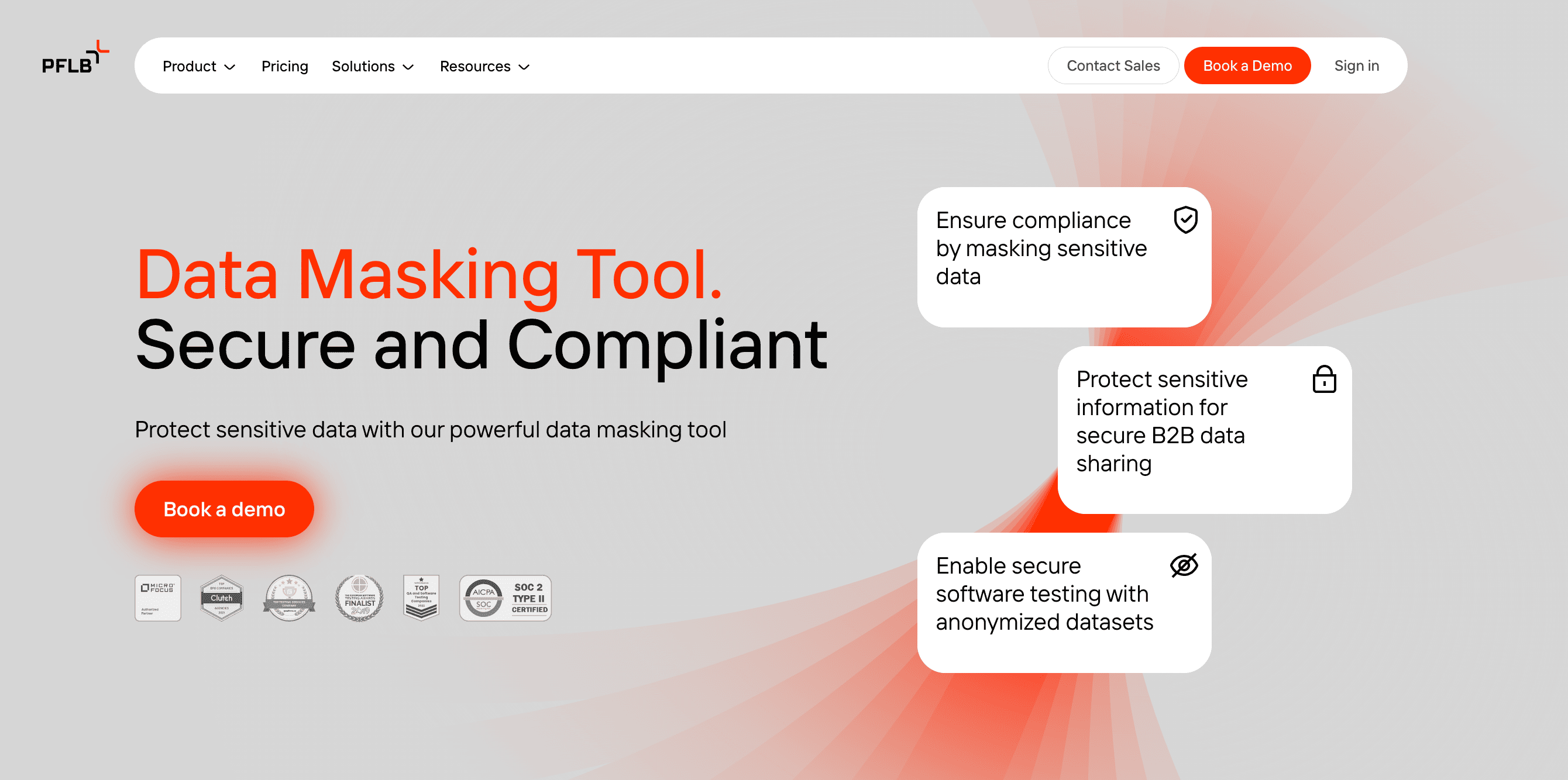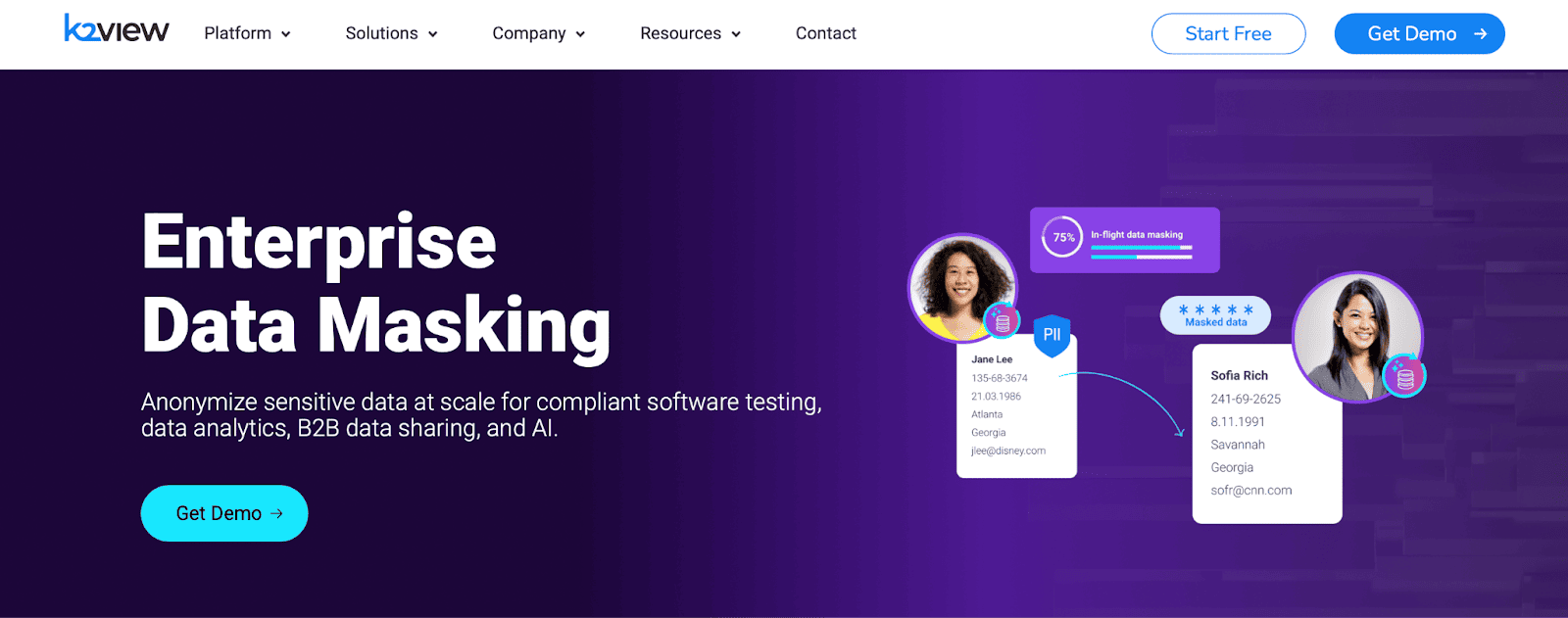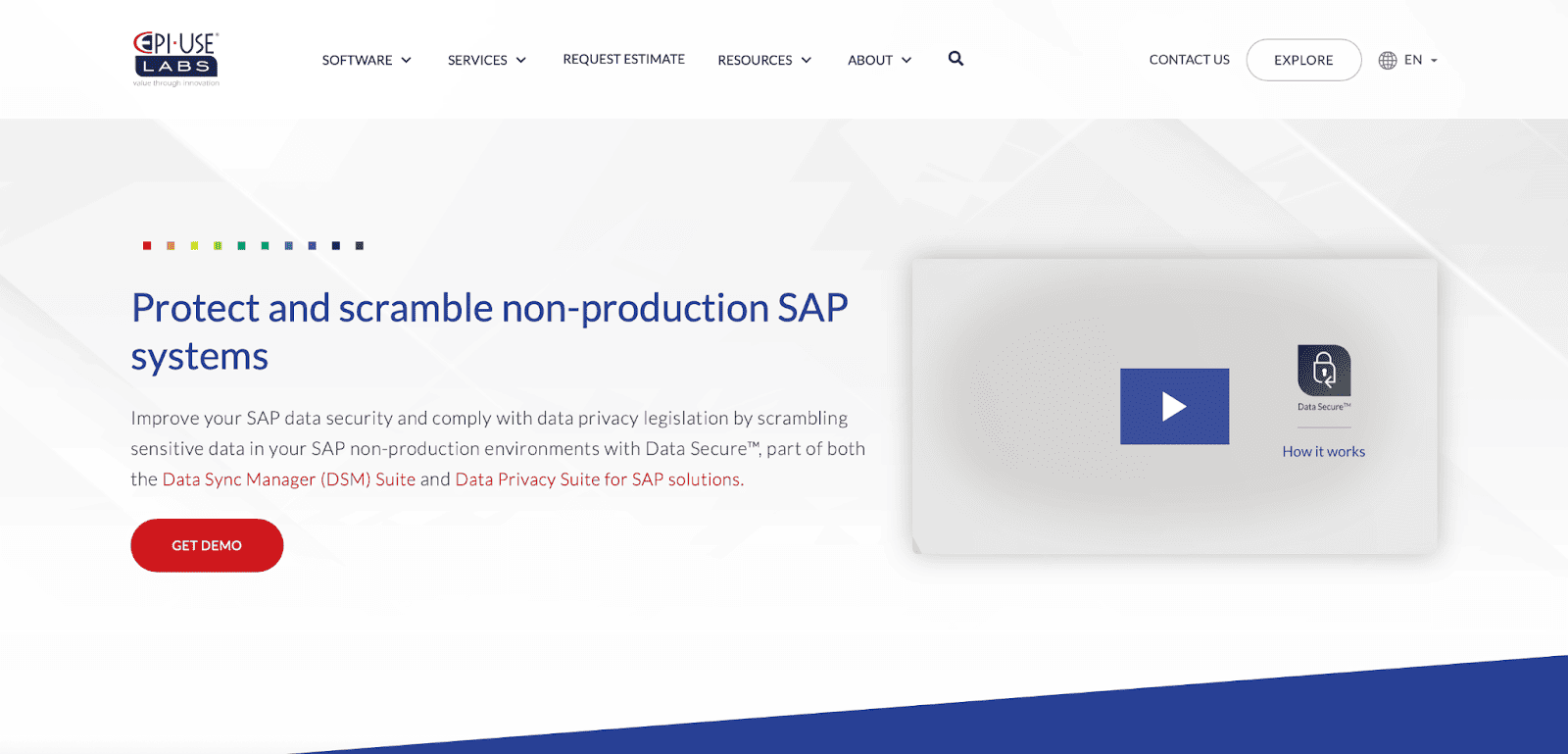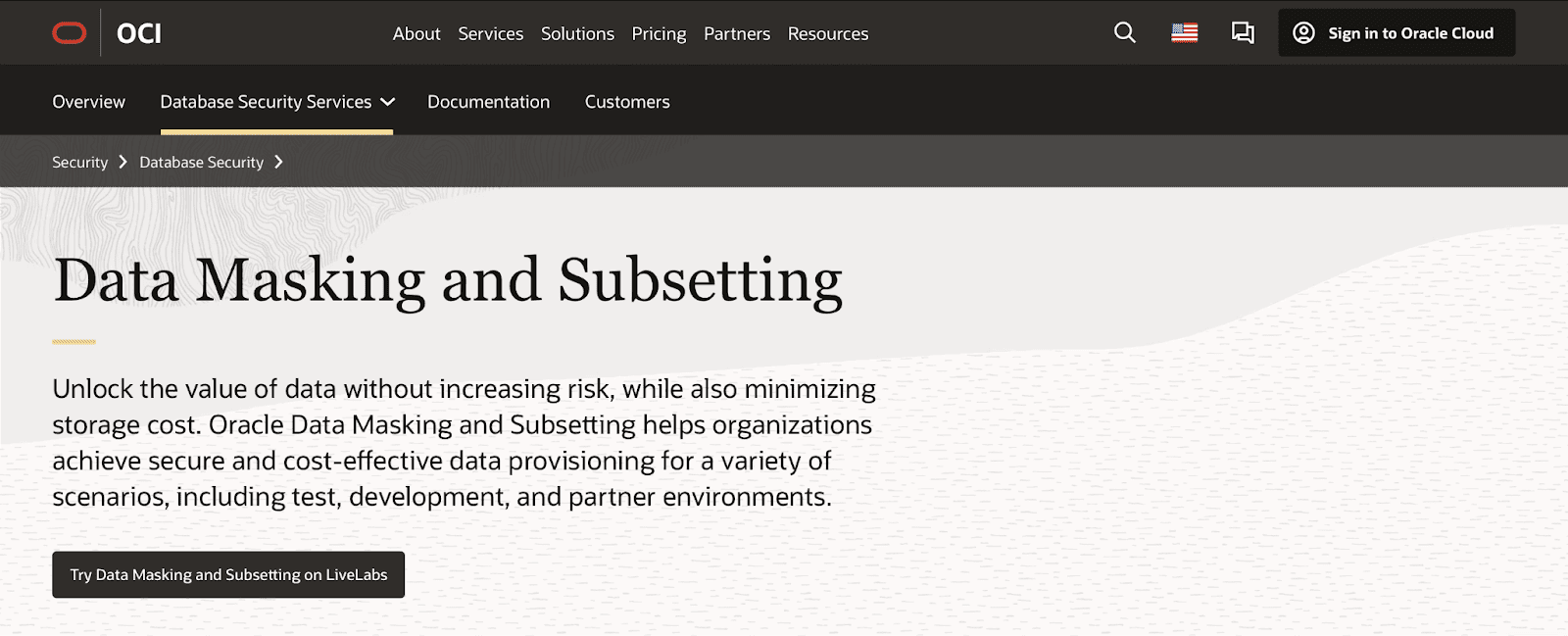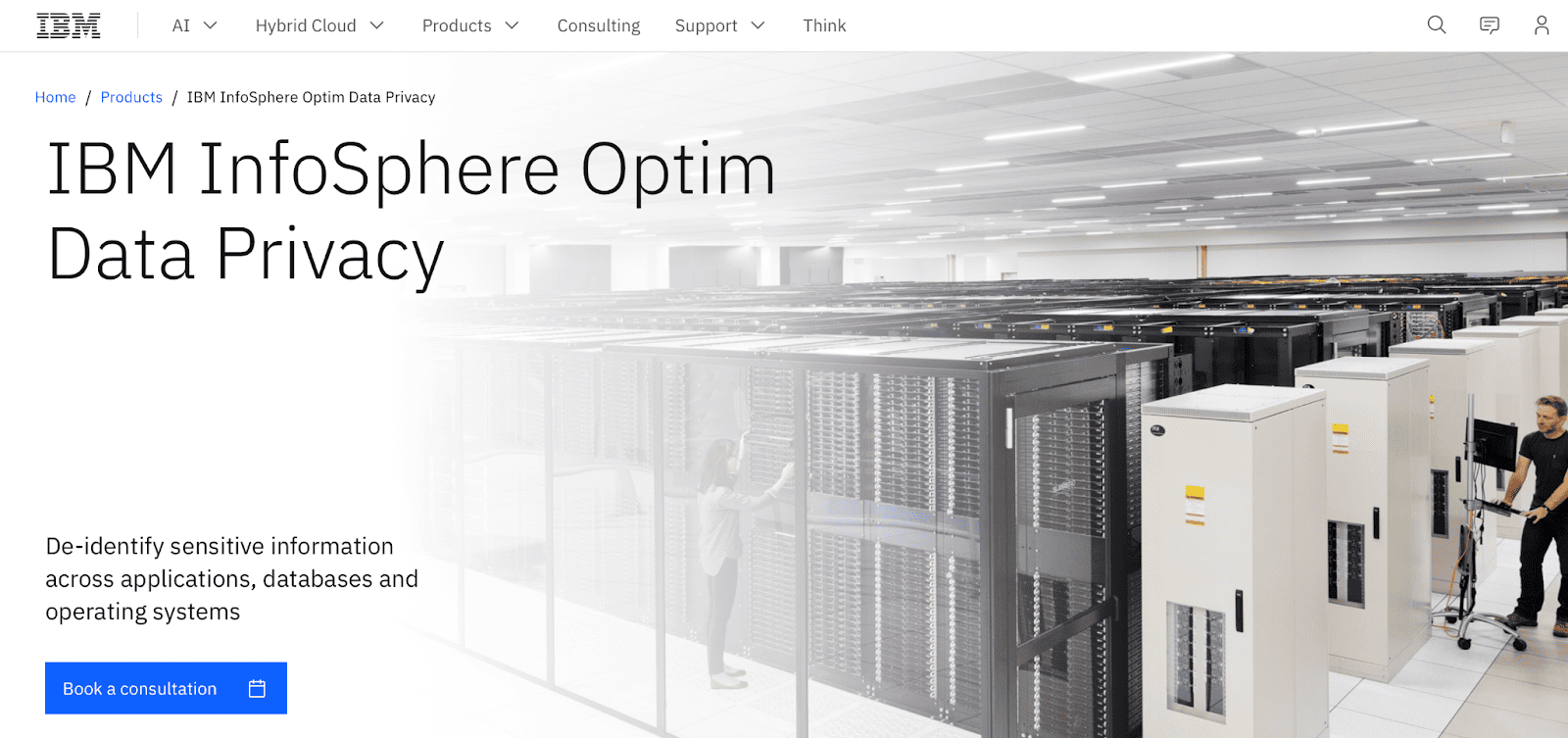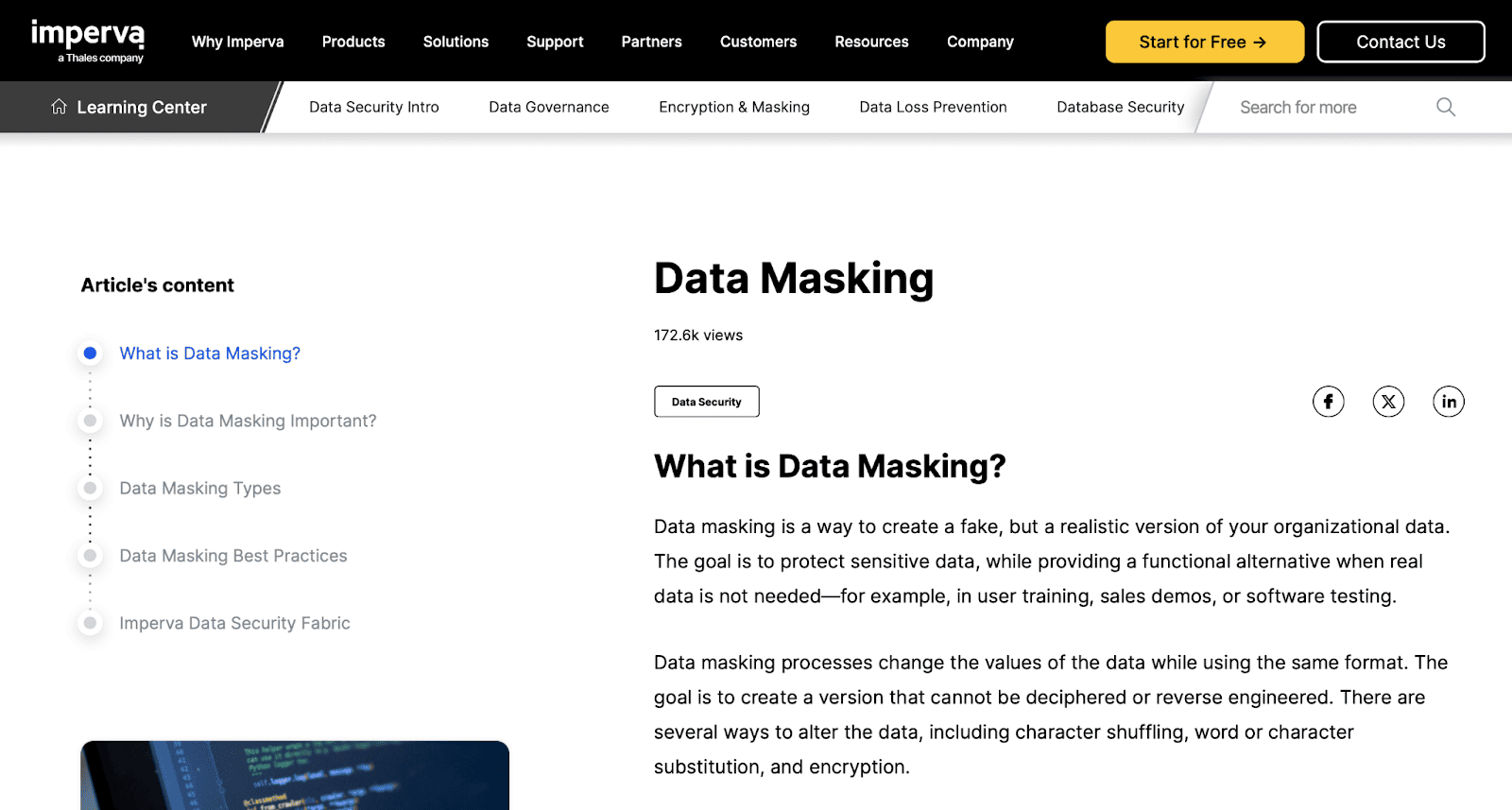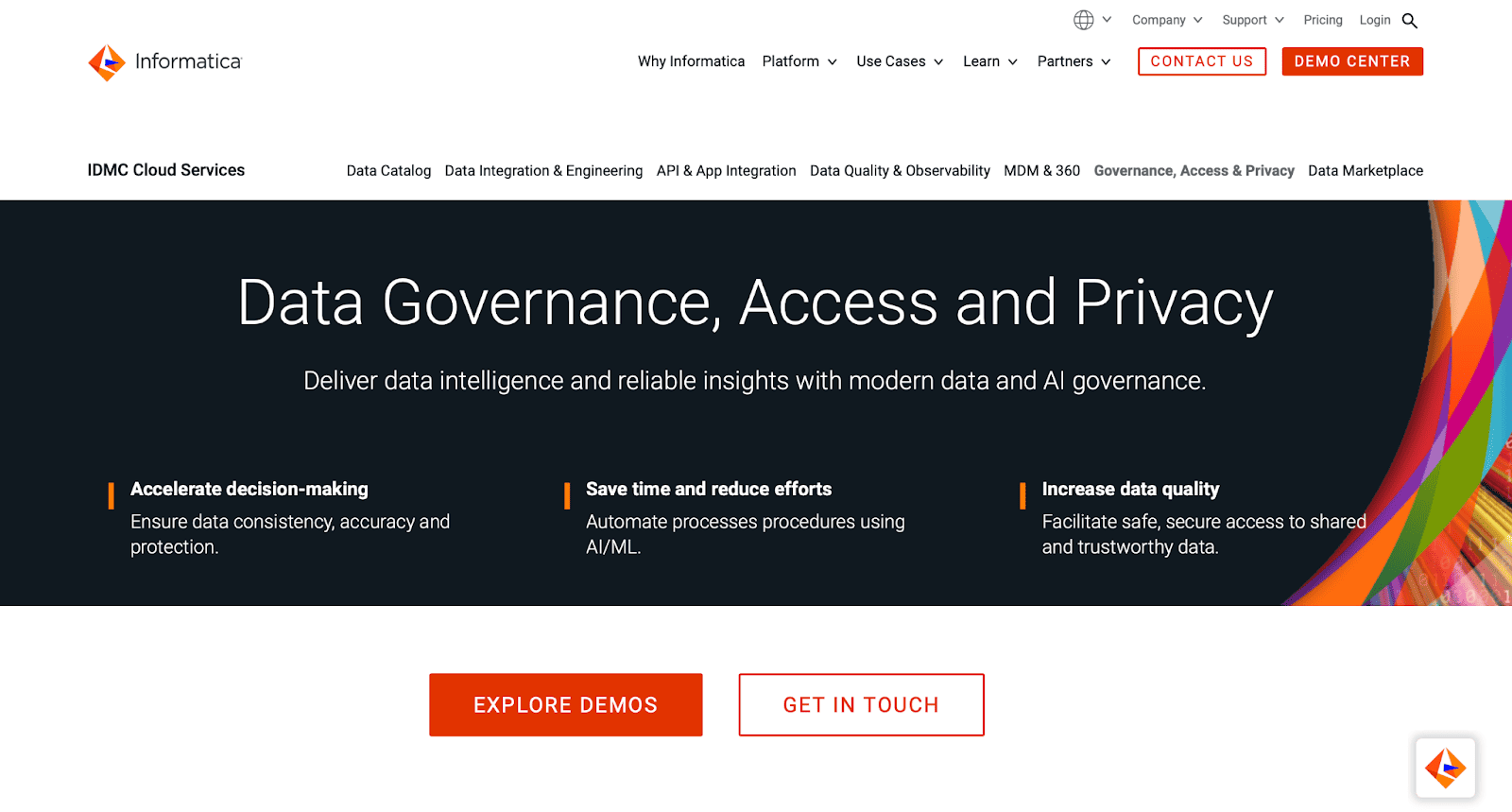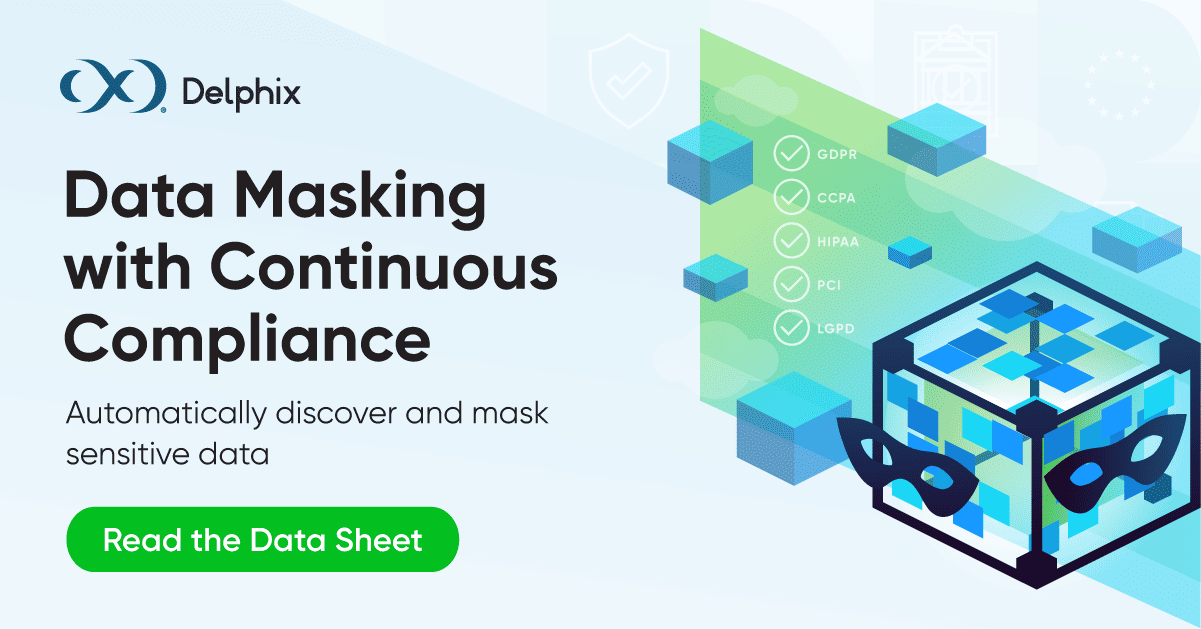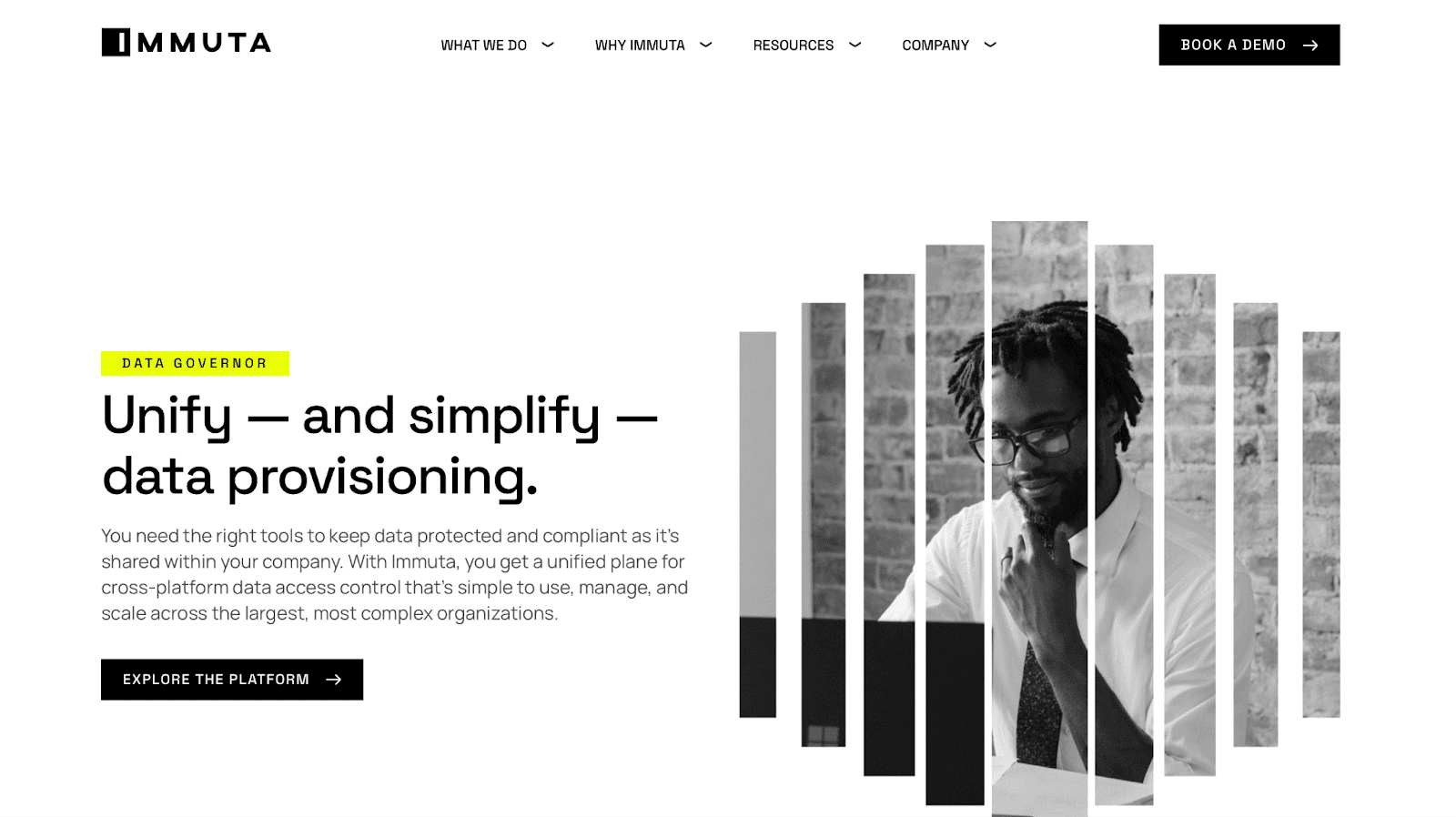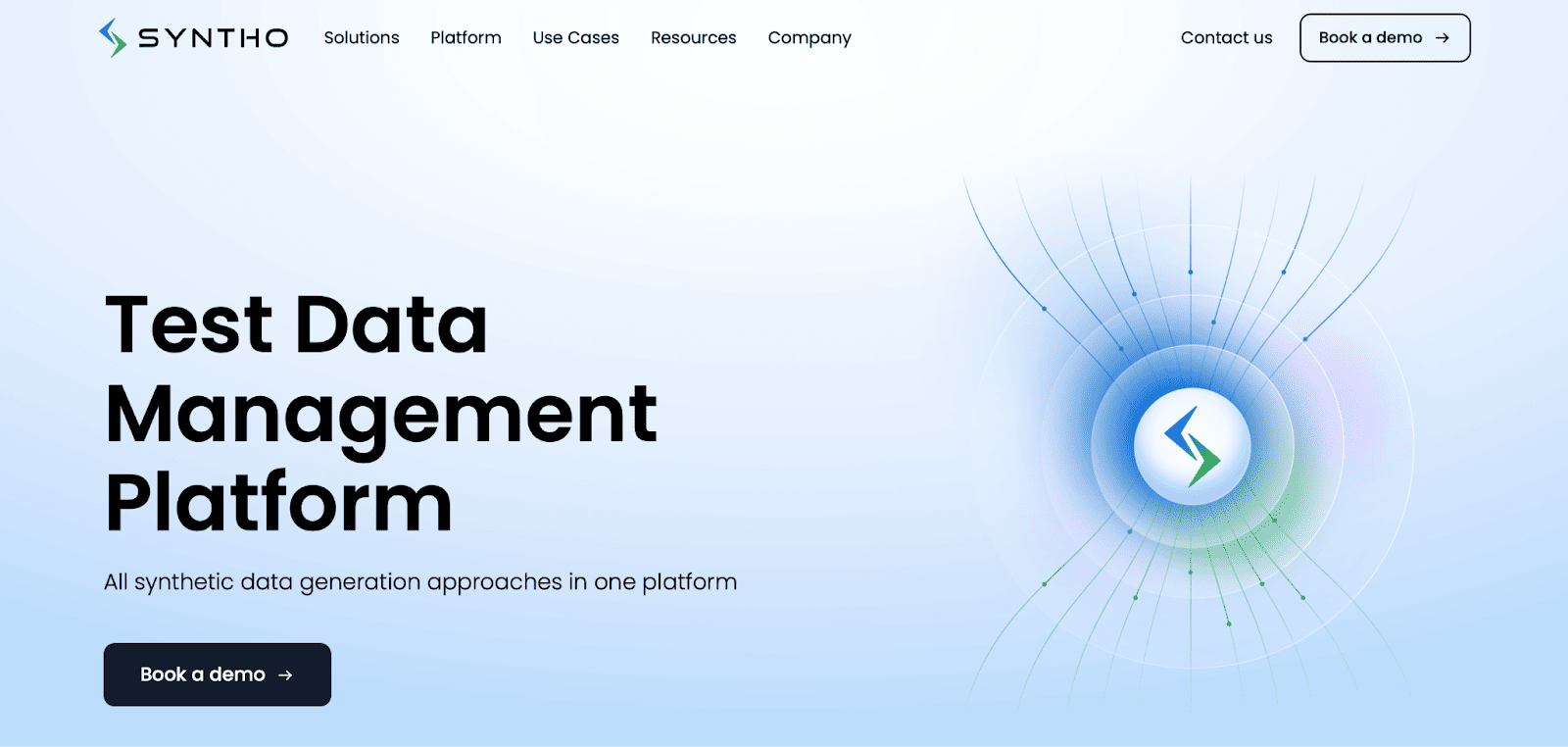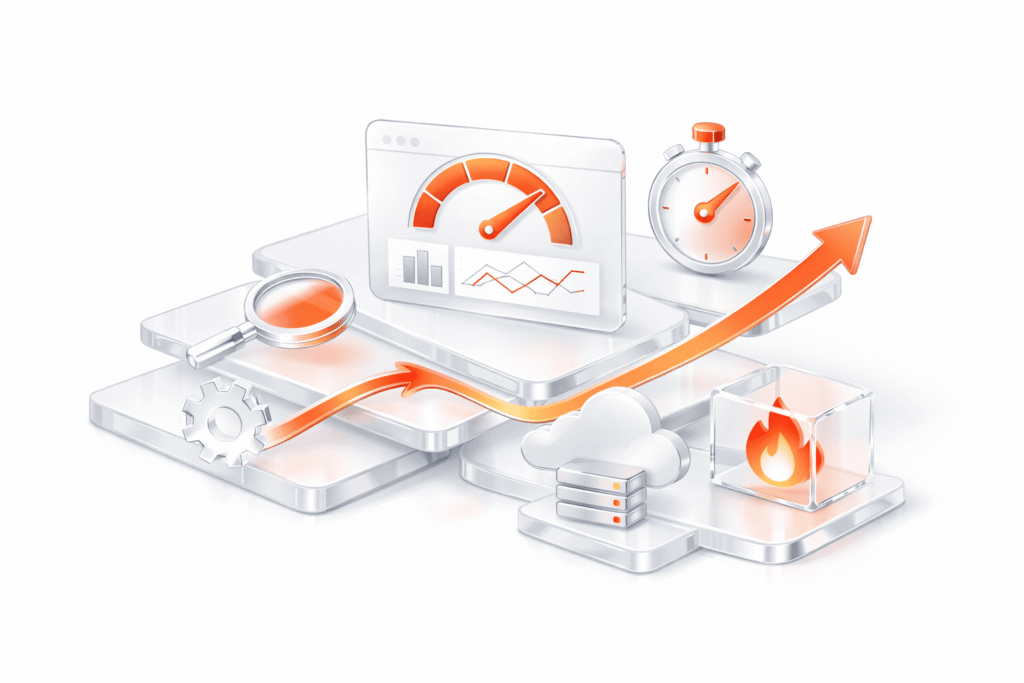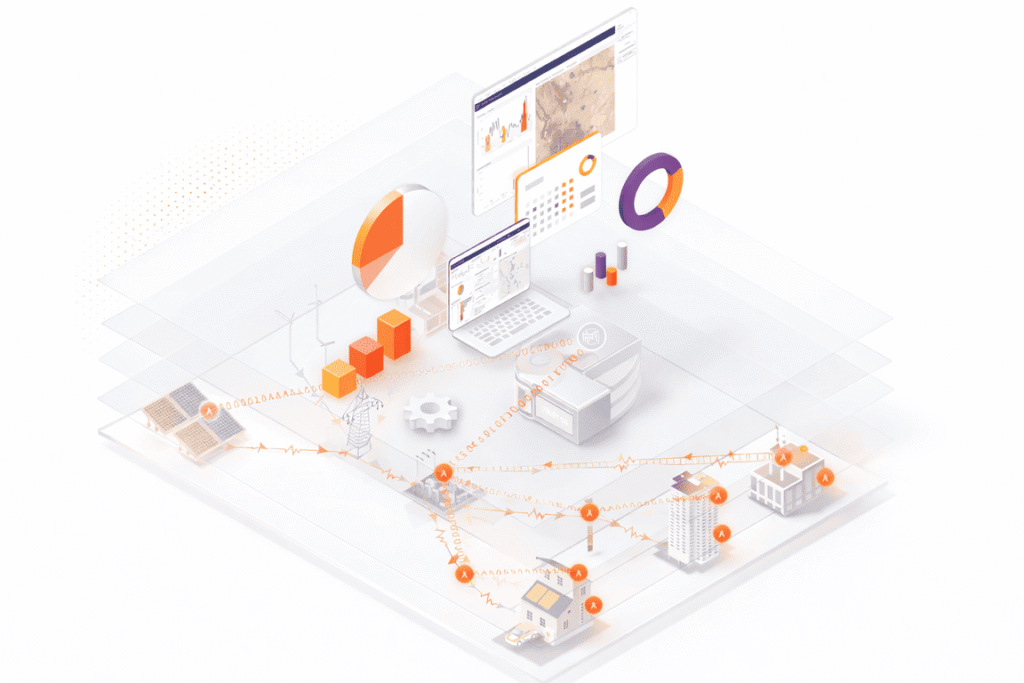Data breaches can cost companies millions. That’s why more businesses are turning to data masking tools to keep sensitive information safe. But with so many options out there, how do you know which one’s right for you?
In this article, we’ll walk you through some of the best data masking tools available today. Whether you’re a developer, security lead, or IT decision-maker, you’ll find practical insights, pros and cons, and tips to help you choose the tool that actually fits your needs.
Key Takeaways
- Data masking secures sensitive information in testing environments.
- Leading tools provide dynamic, static, and format-preserving masking.
- Selection depends on compliance needs (GDPR, HIPAA) and data complexity.
- Prevents data leaks while maintaining realistic test scenarios.
- PFLB advises on data protection strategies for safe performance testing.
What Are Data Masking Tools?
Data masking tools are designed to protect sensitive information by replacing real data with fake but realistic data. Think of it as disguising your data, so even if someone gets unauthorized access, they can’t see or use the real thing.
This is especially important when teams need to work with production-like data in non-secure environments, like development, testing, or training. Instead of using actual customer names, credit card numbers, or health records, these tools swap them out with fictional versions that still behave like the real data.
Why use data masking tools? Because they help companies stay compliant with data privacy laws like GDPR, HIPAA, and CCPA, while also lowering the risk of data breaches. They’re a critical part of any serious data protection strategy, especially for organizations handling PII (personally identifiable information) or financial data.
Let’s dive into the data masking tools list.
Data Masking Tools for 2026
This guide serves as a data masking tools comparison, featuring insights into the top data masking software used by businesses that prioritize security and compliance. Whether you’re managing on-premise systems or hybrid cloud environments, these tools can form the backbone of your data protection strategy.
Data Masking Tools Comparison Table
1. PFLB
Website: PFLB Data Masking Tool
PFLB delivers a powerful and flexible data masking solution designed for enterprise-scale environments, helping companies protect sensitive data across development, testing, analytics, and outsourcing scenarios. Built with performance and compliance in mind, it supports structured and unstructured data across various database systems and file formats. PFLB’s tool is particularly effective for large organizations that need to anonymize vast amounts of data quickly, without breaking application functionality or workflows.
Pros:
- High-speed data masking for large volumes of information
- Supports both structured (e.g. databases) and unstructured data (e.g. logs, documents)
- Compatible with major database platforms (Oracle, SQL Server, PostgreSQL, etc.)
- Maintains referential integrity to ensure data remains usable after masking
- Wide selection of masking techniques: substitution, encryption, shuffling, nulling, and more
- Built-in compliance support for GDPR, HIPAA, CCPA, and other regulations
- Can be integrated into CI/CD pipelines for automated masking
- Designed to minimize performance impact in test environments
- Dedicated expert team for onboarding, support, and customization
- Available as part of a full suite of performance and data management services
Cons:
- Requires technical setup and familiarity with data workflows to unlock full capabilities
- May involve a learning curve for teams new to data masking practices
Cost: Pricing is based on the complexity and scale of the project. Contact PFLB for a tailored quote.
2. K2View
Website: K2View Data Masking Tools
K2View offers an advanced data masking solution that stands out for its unique, micro-database architecture and real-time capabilities. The platform is built to handle complex enterprise environments by enabling dynamic and static masking, powered by AI-based PII discovery. K2View’s approach focuses on delivering secure, role-based access to sensitive information without duplicating or exposing original datasets. It’s particularly suitable for organizations managing large volumes of customer data spread across multiple systems.
Pros:
- AI-driven discovery of sensitive data (PII, PHI, PCI) for faster setup
- Supports dynamic (real-time) and static data masking in production and non-production environments
- Preserves data integrity and usability across multiple data sources and applications
- Integrates well with legacy systems and cloud-native platforms
- Offers fine-grained access control policies for data masking at user level
- Built-in audit trails and governance features to support compliance
- Designed for scalability across distributed data landscapes
- Can be deployed on-prem, in the cloud, or in hybrid environments
Cons:
- Initial setup and integration can be complex, requiring technical expertise and planning
- Steeper learning curve for teams unfamiliar with K2View’s micro-database model
- Advanced functionality may demand extensive customization and development effort
- Higher operational overhead for ongoing management and policy maintenance
- Limited public documentation; most guidance requires direct vendor support
Cost: Pricing is not publicly listed and varies depending on the deployment model and data environment.
If you are not sure whether K2View is for you – check out our K2View alternatives list.
3. EPI-USE Labs
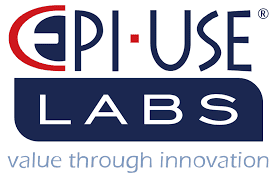
Website: EPI-USE Data Secure
EPI-USE Labs offers Data Secure, a specialized data masking and anonymization tool built for SAP systems, particularly SAP HCM. It enables organizations to efficiently anonymize sensitive employee and payroll data in development and test environments while keeping the systems fully functional. The tool is designed to help SAP-driven enterprises meet strict data privacy regulations such as GDPR and POPIA without disrupting core business processes.
Pros:
- Purpose-built for SAP environments, especially SAP HCM
- Fast anonymization with minimal downtime
- Ensures referential integrity and functional system behavior after masking
- Supports compliance with global privacy standards (GDPR, HIPAA, POPIA)
- Built-in templates for rapid implementation across typical SAP data types
- Can be used to prepare secure data sets for outsourcing or training scenarios
- Backed by a global team of SAP experts and consultants
Cons:
- Primarily focused on SAP; limited value for organizations using other platforms
- Customization may be needed for non-standard SAP modules or legacy data
- Requires SAP-specific expertise to deploy and maintain effectively
- Smaller businesses may find the solution overly complex for their needs
- Limited scalability outside of SAP-focused use cases
- Integration with broader enterprise data ecosystems (non-SAP) can be challenging
Cost: Pricing is tailored to project scope and system complexity.
4. Oracle Data Masking and Subsetting
Website: Oracle Data Masking
Oracle’s Data Masking and Subsetting solution is designed to protect sensitive data by replacing it with realistic, anonymized values while creating efficient, manageable subsets of production data for non-production use. It helps organizations reduce risk, support compliance, and lower infrastructure costs by avoiding full-scale data replication in dev/test environments. The tool integrates tightly with Oracle Database and is ideal for companies already operating within Oracle’s ecosystem. Read also our post – K2view vs Oracle.
Pros:
- Seamless integration with Oracle databases and tools
- Built-in support for data subsetting to reduce storage costs
- Helps ensure compliance with major data protection regulations (GDPR, HIPAA, etc.)
- Maintains data integrity and application functionality post-masking
- Automates the process of masking and provisioning for non-production environments
- Supported by Oracle’s extensive security and data governance framework
Cons:
- Best suited for Oracle-centric infrastructures, limited compatibility with non-Oracle systems
- Requires licensing and may incur additional costs depending on deployment size
- Steeper learning curve for teams not already familiar with Oracle tools
- Less flexible than third-party tools when working in multi-cloud or hybrid environments
- UI and reporting features may feel dated compared to more modern masking platforms
- Full capabilities often tied to broader Oracle stack (e.g., Enterprise Manager, Cloud offerings), which can lead to vendor lock-in
Cost: Pricing is based on licensing and Oracle’s service agreements. For accurate costs, reach out to Oracle’s sales team.
5. IBM InfoSphere Optim Data Privacy

Website: IBM InfoSphere Optim
IBM’s InfoSphere Optim Data Privacy is a powerful enterprise-grade data masking solution that helps organizations de-identify sensitive information across applications, databases, and files. It supports a wide range of masking techniques and ensures test and development environments remain functional while meeting stringent data privacy requirements. Optim is built for complex IT ecosystems and integrates well with IBM’s broader data governance and lifecycle management tools.
Pros:
- Offers multiple masking methods, including encryption, substitution, and tokenization
- Supports both structured and semi-structured data across various platforms
- Enables data masking across applications, including enterprise systems like SAP and PeopleSoft
- Helps organizations comply with GDPR, CCPA, HIPAA, and other data privacy laws
- Maintains data integrity for functional testing and analytics workflows
- Can be integrated with broader IBM security and data lifecycle solutions
Cons:
- Implementation may require specialized knowledge of IBM systems and enterprise data architectures
- Complex configuration process for environments with varied data sources
- Limited flexibility if not used within an IBM-centric data environment
Cost: IBM provides custom pricing based on project size, number of environments, and licensing needs.
6. Camouflage Software (Imperva Camouflage)

Website: Imperva Camouflage Data Masking
Imperva’s Camouflage Data Masking solution helps organizations safely use sensitive data in non-production environments by applying anonymization techniques that maintain realism and consistency. It supports various databases and file types, making it useful across industries like healthcare, finance, and retail. Camouflage is known for its intuitive interface and ease of deployment, helping teams quickly create realistic test data while staying compliant with privacy regulations such as GDPR, HIPAA, and CCPA.
Pros:
- Easy-to-use interface designed for both technical and non-technical users
- Supports a broad range of structured data sources and file formats
- Maintains referential integrity across data sets
- Offers pre-built templates and rules for common data types
- Helps ensure compliance with major global data privacy laws
- Enables rapid masking and provisioning of test environments
Cons:
- Lacks more advanced masking features like dynamic or real-time masking
- Limited support for unstructured or semi-structured data
- Integration with modern CI/CD pipelines and DevOps workflows may require workarounds
- May not scale well for complex enterprise environments with large volumes of data
- Reporting and audit trail capabilities are more basic compared to other enterprise tools
- Customization options are limited without professional services
Cost: Pricing is based on deployment size and support requirements.
7. Informatica Cloud Data Masking

Website: Informatica Data Masking
Informatica’s Cloud Data Masking solution is a highly scalable platform designed to protect sensitive data used in non-production environments like development, testing, training, and analytics. It allows organizations to anonymize personal and confidential data, such as credit card numbers, health records, or social security numbers, while preserving data utility. As part of Informatica’s Intelligent Data Management Cloud (IDMC), it offers rich integration options and is well-suited for businesses operating in hybrid and multi-cloud ecosystems. Informatica’s tool also ranks among the best data protection software on the market, thanks to its robust integration and automation capabilities.
Pros:
- Cloud-native platform ideal for modern enterprise environments
- Preserves referential integrity to keep test environments functional
- Offers flexible deployment across public, private, and hybrid cloud setups
- Integrates with other Informatica tools for broader data governance and protection
- Provides automation and templates to streamline masking workflows
- User-friendly interface for configuring and managing masking rules
Cons:
- Full functionality may require bundling with other Informatica products (e.g. data integration, governance)
- Complex licensing models can be confusing for new customers
- May require dedicated resources or support for implementation and customization
Cost: Informatica offers pricing based on deployment size, required features, and data volumes.
See more in our post – Informatica Cloud Data Masking alternatives.
8. Delphix

Website: Delphix Data Masking
Delphix provides a comprehensive data masking solution as part of its DevOps Data Platform, built for fast-paced development teams that need access to secure, production-like data. The platform automates the discovery and anonymization of sensitive fields across a wide range of databases and applications. Delphix is especially strong in enabling rapid, secure data delivery in testing and QA workflows, while helping organizations comply with privacy laws such as GDPR and HIPAA.
Delphix is known not only for its DevOps-friendly masking workflows but also for positioning itself as a versatile data obfuscation tool that simplifies compliance and speeds up development.
Pros:
- Automated identification and masking of sensitive data
- Supports major relational databases and enterprise applications
- Ensures compliance with global data privacy regulations
- Reduces time and manual effort in test data management
- Offers both static and dynamic masking options
Cons:
- Not ideal for teams without established DevOps practices
- Some features may be overkill for basic masking needs
- Limited out-of-the-box templates for niche data formats or custom systems
- May require a culture shift in how teams manage test data
Cost: Pricing is tailored to deployment scope and technical requirements.
9. Immuta
Website: Immuta Data Masking
Immuta is a comprehensive data security platform specializing in dynamic data masking and fine-grained access control. It enables organizations to protect sensitive information across various cloud and on-premises environments without compromising data utility. The platform integrates seamlessly with major data ecosystems, including Snowflake, Databricks, AWS, and Google BigQuery.
Pros:
- Applies masking in real-time based on user attributes and access policies, eliminating the need for data duplication.
- Offers granular access controls by evaluating user, data, and environmental attributes.
- Facilitates adherence to data privacy laws such as GDPR, HIPAA, and CCPA through automated policy enforcement.
- Compatible with leading data platforms, enhancing existing data workflows without significant overhaul.
Cons:
- Implementation may require specialized knowledge and time investment, particularly in complex data environments.
- Primarily optimized for cloud deployments, which may pose challenges for organizations with on-premises infrastructure.
- Pricing may be a concern for smaller organizations or those with limited budgets.
Cost: Immuta offers customized pricing based on factors such as deployment size, data volume, and specific organizational needs. Interested parties should contact Immuta directly for a tailored quote.
10. Syntho

Website: Syntho – AI-Generated Synthetic Data Platform
Syntho is an AI-driven synthetic data platform designed to generate high-quality, privacy-preserving synthetic datasets. By creating artificial data that mirrors the statistical properties of real datasets, Syntho enables organizations to utilize data for analytics, testing, and machine learning without compromising privacy.
Pros:
- Produces realistic synthetic data that retains the statistical characteristics of original datasets, facilitating accurate analysis and model training.
- Includes tools for PII scanning, synthetic mock data generation, and consistent mapping to maintain referential integrity across datasets.
- Supports applications in test data management, advanced analytics, product demonstrations, and data sharing across various industries.
Cons:
- Users unfamiliar with synthetic data concepts may require time to fully leverage the platform’s capabilities.
- Integrating Syntho with existing systems and workflows may necessitate additional configuration and resources.
- Pricing details are not publicly disclosed, which may pose challenges for budget planning and comparison with other solutions.
Cost: Syntho offers customized pricing based on organizational needs, data volume, and specific use cases.
How to Choose the Best Data Masking Tool
Not all data masking tools are created equal, and the right choice depends on your organization’s needs, tech stack, and data sensitivity. Below are key factors to consider when evaluating a data masking solution:
- Integration with any data source: A strong data masking tool should integrate easily with your existing systems, whether that’s relational databases, cloud storage, data lakes, legacy apps, or file-based data sources. Flexibility here minimizes disruption and maximizes ROI.
- PII discovery: Automatically detecting Personally Identifiable Information (PII) across your data assets is critical. Look for a tool with built-in PII discovery that scans your systems, flags sensitive fields, and helps you prioritize what needs to be masked.
- Dynamic data masking: For environments where data is accessed in real time, like customer service dashboards or analytics tools, dynamic masking applies rules on-the-fly, showing different users different views of the same dataset without duplicating or exposing raw data.
- Wide choice of data masking techniques: A versatile tool should offer multiple masking techniques: substitution, shuffling, nulling, encryption, tokenization, and format-preserving transformations. This allows you to tailor masking to different use cases; testing, analytics, training, or outsourcing.
- Ability to mask unstructured data: Many tools focus only on structured databases. But real-world environments often include PDFs, Excel files, logs, emails, and other unstructured formats. Choose a platform that can handle both structured and unstructured data sources to ensure complete coverage.
- Use of data anonymization and obfuscation tools: Some organizations go beyond traditional masking and also use data anonymization tools or data obfuscation tools to add an extra layer of security, especially when sharing data externally or training AI models.
- Policy-based automation: The best tools let you define and enforce masking policies centrally, with role-based controls and audit logs. This helps you scale data protection while maintaining compliance.
- Scalability and performance: As your organization grows, so does your data. Choose a tool that performs consistently under high loads and supports large-scale masking tasks without bottlenecks.
Consider PFLB Your Best Data Masking Tool Provider
When it comes to safeguarding sensitive data, especially in complex enterprise environments, PFLB stands out as a trusted partner. With a proven track record in delivering high-performance data masking solutions, PFLB ensures that organizations can maintain data privacy, comply with regulations, and streamline their operations.
Why Choose PFLB?
Expertise in Diverse Projects: PFLB has collaborated with a range of industries, including banking, healthcare, and energy, to implement tailored data masking strategies. Their solutions are designed to handle vast datasets, ensuring that even the most intricate systems remain secure and compliant.
Innovative Solutions: PFLB’s proprietary tool, DataSan, offers rapid and efficient data masking capabilities. Operating directly at the database level, DataSan can mask over 1,000,000 table rows per minute, significantly reducing the time required for data anonymization processes.
Regulatory Compliance: With built-in support for major data protection regulations like GDPR, HIPAA, and CCPA, PFLB’s solutions ensure that your organization remains compliant while minimizing the risk of data breaches.
Ready to Elevate Your Data Security?
Book a Demo today to discover how PFLB can empower your organization.
Conclusion
As cyber threats grow more advanced, and regulations more demanding, choosing from the best data masking tools or broader data protection tools is more critical than ever. This comparison of the top data masking software has highlighted options that can help any organization stay compliant and secure. Whether you’re a large enterprise or a growing company, investing in the right solution can help you stay compliant, protect sensitive information, and confidently scale your operations.


